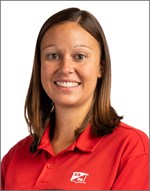Working Safely in Dry Conditions; Annual Wabash, IN, Farm Field Days
BY Dairyland Seed Agronomy Team
FLASH DRYING
A large area of the Dairyland Seed footprint is experiencing droughty conditions coupled with high heat and low humidity. These conditions set the stage for the phenomenon known as flash drying or flash drought responses in both corn and soybeans.
Flash drying occurs when a plant respires or lets off more water that can be replaced by subsoil moisture.
- This increase stress on the plant can lead to more rapid maturation which can lead to smaller and lower test weight seeds.
- The closer a plant gets to Physiological Maturity, the less of a potential loss. In corn, this stage is R6 or Black Layer and in soybeans this stage is R8 or Full Maturity (95% of the pods have reached their mature pod color).
As scouting occurs in our drought impacted areas you are likely to see crops maturing faster than normal and flash drying may be the cause.
FIRE AND HARVEST CONCERNS IN DRIER CONDITIONS
In a large percentage of the Dairyland Seed footprint we have experienced drier than normal conditions so far this growing season. With these drier conditions, we are pushing our crops to harvest sooner than normal. Some areas have already started taking corn silage. Before long, other areas will be starting silage with soybean harvest soon to follow.
Listed below are safety concerns to consider while harvesting in a drier environment:
- Routine maintenance to ensure that all bearings and gear boxes are well lubricated to prevent heat buildups.
- Fire Extinguishers: Have multiple working fire extinguishers on your equipment. Place one in the cab and another closer to the implement or trailer for easy access.
- Crop Residue Build Up: Remove crop residue from the machine, paying attention to the head or platform, feeder house, exhaust system as well as fans and spreaders. Utilizing a leaf blower or compressed air to remove the residue at night, or during the day if it starts to build up, is a quick way to get through a dusty job.
- Tillage Equipment: Have a disk or other implement hooked up and ready to go in case you need to create an area with little or no residue so the fire has no fuel to burn or the area that can burn is limited.
- Water Truck: Have a water truck full of water and ready to go near or at the field you are working is a great tool to help limit a fire’s spread.
- 911 Address: Knowing the 911 address of fields for yourself and your employees will help expedite getting help to an equipment fire.
Lastly, taking the time to walk around your machine, removing residue that is in moving parts, or investigating that strange vibration or sound, goes a long way in preventing a fire in our drier environments.
ANNUAL WABASH, IN, RESEARCH FARM FIELD DAY
Join us for the annual Wabash, Indiana, research farm field day on Wednesday August 25 and Thursday, August 26. Event highlights include an introduction of new and exciting seed products; showcase and discussion of research and demonstration projects; precision and digital ag demonstrations and news as well as other company updates.
Parking is available at the plot location (1326 N St. Rd. 13, Wabash, IN).
Wednesday, August 25: Registration: 5PM EST; Plot Tours & Meal: 5:30PM EST
Thursday, August 26: Registration: 9AM EST; Plot Tours: 9:30AM; Meal: 12PM EST
Please RSVP: Call 1-888-563-3163 or 260-225-0810 or email to dsiders@dairylandseed.com
CORN, SOYBEAN AND SILAGE YIELDMASTER CONTEST
Don’t miss out on the annual Dairyland Seed Corn, Silage and Soybean Yieldmaster Contest. If you haven’t entered in the past, this is the year to enter your outstanding yields.
Seed Credits for Winners
- The National Corn, Soybean and Silage Yieldmasters will each receive a $2500 seed credit.
- First Place Corn, Silage and Soybean winners from each zone receive a $1000 seed credit.
- Second Place Corn, Silage and Soybean winners from each zone receive a $500 seed credit.
Entries can be submitted online at www.dairylandseed.com or via your DSM who can submit your entry using the iPad app. Silage entries are due November 3, 2021. Corn and Soybean entries are due December 3, 2021.
CORTEVA TECHNOLOGY USE AGREEMENTS
All growers with orders for any Corteva Agriscience brand seed product, regardless of crop or trait (including non-GMO products) need to have a signed Corteva Technology Use Agreement in place by September 1. Growers should sign the Corteva Technology Use Agreement electronically at www.agcelerate.com. Signing electronically is preferable, however, paper copies are available at www.traitstewardship.com or by calling Rita Frank in the Dairyland Seed West Bend office at 800-236-0163.
 |
 |
 |
 |
 |
| Brian Weller Western Region 507.456.3034 |
Dan Ritter Central Region 219.863.0583 |
Branden Furseth Northern Region 608.513.4265 |
Mark Gibson Eastern Region 260.330.8968 |
Amanda Goffnett Eastern Region 989.400.3793 |
